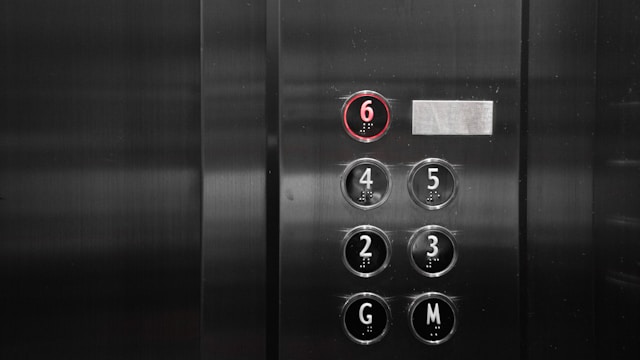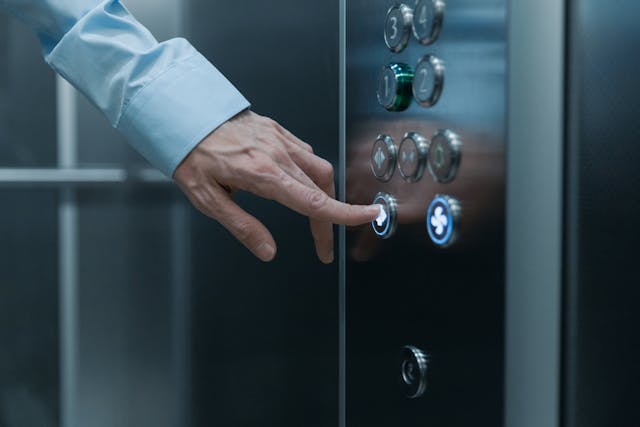Maintaining elevators goes beyond mere operational necessity. It is an important aspect of safety and efficiency in any building. Regular upkeep guarantees that these mechanical giants function reliably and effectively, minimizing downtime and enhancing passenger experience.
Understanding the importance of routine maintenance can save building owners and managers significant costs in the long term and contribute to the safety of users.

The Importance of Routine Maintenance
Routine maintenance of elevators plays a role in securing their safe and efficient operation. Neglecting this maintenance can lead to significant safety hazards and operational failures. Elevators involve complex mechanical systems that require regular service checks to operate smoothly.
Building codes often mandate certain maintenance practices, making it important for property owners to comply to avoid potential legal consequences. Regular maintenance can identify potential issues early, preventing them from turning into significant problems that require extensive repairs.
Routine maintenance boosts the lifespan of the elevator system. Elevators are significant investments for any building, and their longevity directly impacts property value.
Owners can save time and money by avoiding early replacements by maintaining their components. Routine checkups provide an opportunity for elevator operators to guarantee that all safety features are functioning properly, which is key for passenger security.
Cost Efficiency of Regular Overhauls
Investing in regular maintenance is economically efficient. Routine checks may seem like an additional expense, but the long-term savings often make these costs negligible.
Unexpected breakdowns can lead to costly repairs and lost revenue due to operational downtime.
Each time an elevator goes out of service, building tenants and visitors can become frustrated, leading to negative impressions of the property. By committing to regular elevator maintenance, building owners can mitigate the risk of sudden failures. Routine visits from qualified personnel help spot wear and tear that may not be visible during regular use.
These proactive measures guarantee that any needed repairs are made quickly, avoiding escalating issues that could affect a broad range of operational components.
Companies often extend warranties on equipment that undergoes regular maintenance, offering additional financial security.
Enhancing Safety Through Regular Inspections
Safety must always be a priority in maintaining elevators. Regular inspections significantly reduce risks associated with elevator use by guaranteeing that all components, from the cabling system to emergency brakes, are functioning correctly.
Inadequate inspections may overlook safety features, leading to dire consequences. The last thing any building manager wants is to jeopardize the safety of the occupants.
With regular maintenance, building owners can confidently assure users that the equipment operates safely at all times. Proper checks should focus on mechanical components and assess electronic systems and safety protocols.
Many service contracts include a full safety inspection as part of their regular maintenance, further emphasizing the importance building owners should place on routine practices.
Inspections often identify minor issues before they escalate into costly repairs or system failures. Staying compliant with local safety codes and regulations protects residents and prevents potential legal liabilities.
Routine documentation of inspection results guarantees transparency and accountability. Prioritizing consistent elevator evaluations grows a safer, more reliable environment for everyone who uses the building.
Improving User Experience and Satisfaction
An elevator that operates smoothly contributes to a positive user experience. Regular lift maintenance helps to reduce instances of breakdowns and malfunctions, which can lead to unfavorable experiences for users.
When people ride a well-maintained elevator, they feel secure and comfortable. Frequent breakdowns can make users anxious and frustrated, leading to complaints about building management.
Lasting relationships with tenants are developed through consistent performance and reliability in service. Whether a commercial or residential property, people appreciate an elevator that seamlessly integrates with their routines.
Regular maintenance supports this and showcases a commitment to providing high-quality services. Improved user experience translates into improved tenant retention, benefiting property owners.
Regulatory Compliance and Standards
Compliance with local, state, and federal elevator codes is important for building owners. Failure to adhere to regulations can result in fines, legal ramifications, or even closure for repairs. Regular maintenance is strategic and a legal necessity in many jurisdictions.
Property managers must guarantee that their elevators receive the appropriate inspections and certifications to confirm compliance.
By linking regular lift maintenance to compliance standards, property owners can better protect themselves from potential liabilities.
This guarantees a safer environment and helps maintain a building’s reputation in the community.
When elevators operate consistently and meet standards, it reflects well on the management of the property.
Routine maintenance of elevators has far-reaching benefits that extend beyond mere functionality. It improves safety, promotes cost efficiency, improves user satisfaction, and guarantees compliance with regulatory standards.
By investing in regular lift maintenance, building managers can create a safer, more efficient, and more satisfying experience for all users and safeguard their investments well into the future.



Leave a Reply